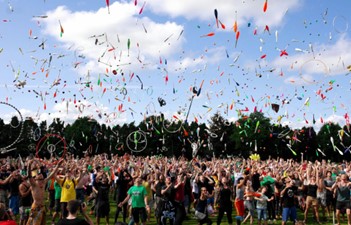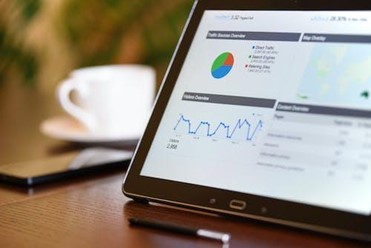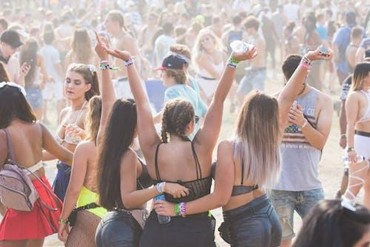Social media has completely changed the way we promote and market events. With its vast reach and targeted advertising algorithms, it has become an essential tool for event organizers to connect with their target audience and create hype around their upcoming festivals or concerts. In this post, here’s how to market your event and we will explore effective strategies and tactics to successfully navigate event marketing through social media.
 Define Your Target Audience
Define Your Target Audience
The first step in social media marketing is to clearly define your target audience. Understanding who your ideal attendees are will help you tailor your messaging and choose the most appropriate social media platforms to focus on. Consider demographics such as age, location, interests, and music preferences. To gather insights into your target audience, conduct surveys or polls to gauge their preferences and expectations. Ask questions about their favorite music genres, preferred event experiences, and their motivations for attending festivals or concerts. This data will help you tailor your marketing efforts and messaging to align with their desires, making your event more appealing to them. Making attendees feel like they are able to create the event experience they want will make them more motivated to attend the event, as they know it will suit their needs and interests.
As well, there is always room for growth. Analyzing data from previous events can be immensely valuable in understanding your target audience’s behaviors. Look for patterns and trends in attendee demographics, engagement levels on social media, ticket sales, and feedback. This information will give you a clearer picture of who your event resonates with and guide your marketing strategy moving forward. Furthermore, most social media sites have built-in mechanisms that analyze the reach and engagement with your content. Take a look at those insights to understand what works and what doesn’t when it comes to interacting with your audience on social media.
The more you know about your target audience, the better equipped you are to tailor your marketing efforts and create a personalized experience that speaks directly to their interests and preferences. This understanding will not only attract the right attendees but also foster a sense of connection and loyalty among your audience, leading to long-term success for your event.
Establish a Strong Online Presence
Speaking of using social media to interact with prospective attendees, before diving into event promotion, you must ensure you have a well-established online presence. To build a strong online presence for your event, it’s crucial to have accounts on major social media platforms such as Facebook, Instagram, Twitter, and YouTube. Each platform offers unique features and caters to different audience demographics, so it’s important to understand which platforms align best with your target audience and focus your efforts accordingly. Once you have your accounts set up, it’s essential to develop a consistent branding strategy that reflects the essence of your event. This includes using a cohesive color palette, typography, and logo that represent the vibe and theme of your festival or concert. Consistency across all your social media profiles will help create brand recognition and make your event easily identifiable. High-quality visuals are a powerful tool for engaging your audience. Use professional photos, videos, and graphics that capture the energy, atmosphere, and unique aspects of your event. Showcase the lineup, venue, stage setup, and any other visually appealing elements that will entice potential attendees. Crafting compelling and shareable content is crucial for generating buzz around your event.
Develop a content calendar that includes a mix of promotional posts, behind-the-scenes glimpses, artist features, sneak peeks, and interactive content that encourages audience participation. Use storytelling techniques to create narratives around your event, building anticipation and excitement among your followers. Remember to engage with your audience by responding to comments, direct messages, and mentions. Encourage conversations and foster a sense of community by asking questions, running polls, and actively participating in discussions related to your event.
As well, another idea is to create a unique event hashtag and encourage attendees to use it when sharing their experiences on social media. On sites like Twitter where hashtags trend if used by a certain amount of people in a certain location, this will make more people aware of the event. If you’re looking for another way to personalize your event on social media, apps like Snapchat and Instagram have geofilters, a social media image overlay that can only be accessed within a specific area. This creates a sense of exclusivity around the event that will make those not attending more likely to experience FOMO (fear of missing out), making them want to be at the event.
Leverage Influencer Partnerships
Influencer marketing has emerged as a highly effective strategy for event promotion on social media. By partnering with influencers who resonate with your event’s theme and target audience, you can tap into their established following and leverage their influence to create authentic connections and drive ticket sales. To find the right influencers for your event, look for individuals who align with your event’s values, genre, and target demographic. Look for influencers who have a significant and engaged following, as well as a track record of promoting events or related content successfully. Analyze their content, engagement rates, and audience demographics to ensure they align with your goals. Once you’ve identified potential influencers, reach out to them with a personalized pitch. Offer them complimentary tickets or exclusive perks such as backstage access, VIP treatment, or meet-and-greet opportunities in exchange for promoting your event on their social media channels. Tailor your pitch to highlight how their participation will benefit their audience and emphasize the unique aspects of your event that align with their interests. When collaborating with influencers, give them creative freedom to develop content that resonates with their audience. This allows for authentic and organic promotion, enhancing the credibility of their endorsement.

Remember, the success of influencer marketing relies on building genuine relationships with influencers and providing value to their audience. Authenticity and alignment with your event’s brand and values should be at the core of your influencer collaborations, ensuring that their endorsement resonates with their followers and motivates them to attend your festival or concert. Choose influencers wisely, foster authentic collaborations, and track performance to maximize the impact of your influencer marketing efforts.
Paid Social Media Advertising and Targeted Promotion
Social media platforms provide event organizers with powerful advertising tools to effectively target specific demographics and increase the visibility of their upcoming festivals or concerts. Investing in paid advertising on platforms like Facebook Ads, Instagram Ads, Twitter Promote, and YouTube ads can significantly expand your reach and attract potential attendees who might not have been aware of your event otherwise.

In addition to visuals, craft a compelling ad that emphasizes the unique aspects and benefits of attending your event. Use persuasive language and compelling call-to-actions to encourage users to click through and learn more or purchase tickets. Consider incorporating testimonials or previous attendee experiences to build credibility and trust. As you launch your advertising campaigns, closely monitor their performance using the analytics tools provided by each platform. Track key metrics such as impressions, clicks, click-through rates, conversions, and cost per acquisition. This data will help you identify which ads and targeting parameters are most effective, allowing you to optimize your campaigns and allocate your budget towards the strategies that yield the highest return on investment.
Continuous optimization is crucial to maximize the impact of your paid advertising efforts. Test different ad variations, targeting options, and bidding strategies to find the winning combinations. Monitor the performance of your campaigns regularly and make data-driven adjustments as needed. Remember to set clear goals for your paid advertising campaigns, whether it’s increasing ticket sales, boosting event awareness, or driving traffic to your website. Leveraging paid advertising on social media platforms can greatly enhance the visibility and success of your event. Embrace the targeting capabilities and analytics provided by social media platforms to reach the right people at the right time, increasing your event’s overall impact.

Related Posts:
5 Tips for Effective Festival Marketing on Social Media
Concert Promotion: 6 Best Practices Using Facebook and Instagram

 Define Your Target Audience
Define Your Target Audience


